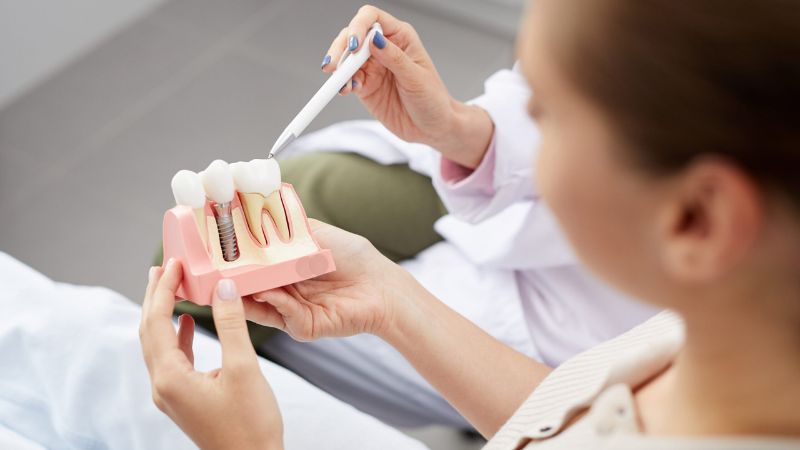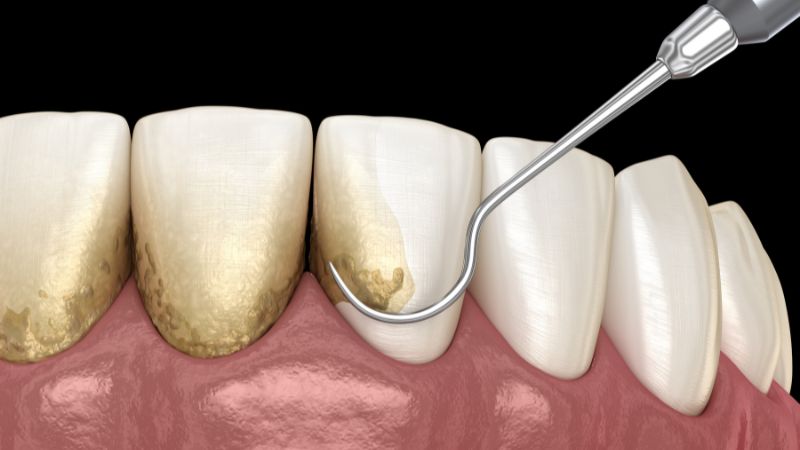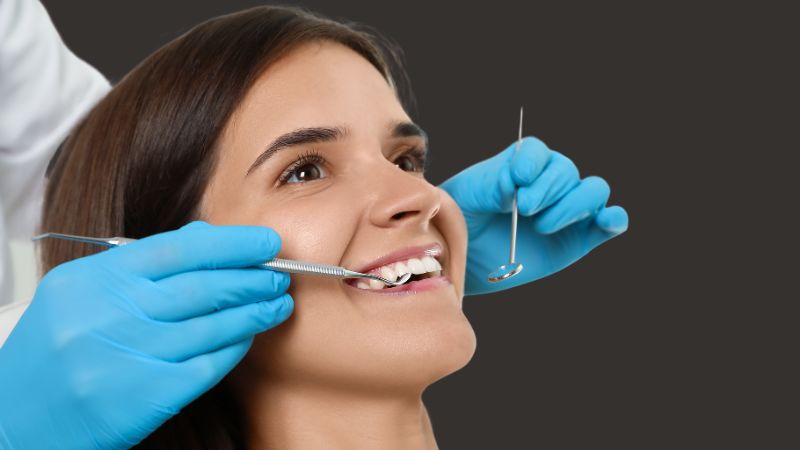Blog
How to Care for Your Dental Implants

Dental implants provide a durable, natural-looking, and effective solution for replacing missing teeth and restoring your smile. They’re designed to be a long-lasting option, but proper care is essential to ensure they remain in top condition for years to come.
By following a consistent and good oral care routine, you can protect your dental implants, enhancing both their longevity and the health of your smile. This guide offers practical steps for maintaining dental implants to help you enjoy their benefits over the long term.
What Are Dental Implants?
Dental implants serve as artificial tooth roots for missing teeth and are usually crafted from biocompatible materials, such as titanium. They are placed into the jawbone, where they gradually fuse with the bone in a process known as osseointegration. Once this bonding is complete, the implant acts as a stable foundation for a crown or bridge, creating a replacement that looks and functions like a natural tooth.
Keep Your Mouth Clean
Proper oral hygiene is key to keeping both natural teeth and implants healthy. While implants are not prone to decay, the surrounding gums and bone can be affected by plaque if not properly cared for. Follow these steps for optimal care:
Brush Twice Daily: Use a soft toothbrush and fluoride toothpaste to gently brush around the implant area twice a day. Soft-bristled or implant-specific brushes can help clean around the implant and crown without irritating the gums.
Floss Daily: Just like natural teeth, implants need regular flossing. Implant-friendly floss can glide smoothly around the implant post, protecting the gum tissue. Floss threaders can also make it easier to clean under the gumline.
Use Mouthwash: An antibacterial mouthwash can help prevent plaque buildup and keep infections at bay. Choose a non-alcoholic mouthwash to avoid drying out your mouth and irritating your gums.
Schedule Regular Dental Visits
Maintaining dental implants requires routine examinations. During these appointments, your dentist will check the implants, determine the condition of your gums, and clean the surrounding areas. Although six-monthly checkups are often advised, your dentist may recommend more regular visits if needed. This enables prompt intervention by identifying early indicators of problems such as gum irritation or loosening.
Avoid Hard or Sticky Foods
Although dental implants are strong and designed to function like natural teeth, cautioning certain foods can help protect them. Hard and sticky foods can damage the implant or the crown on top.
Avoid Hard Foods: Foods like ice, nuts, and hard candies can put excess pressure on your implants, possibly leading to cracks or dislodging of the crown.
Be Careful with Sticky Foods: Treats like caramel and taffy can get lodged around the implant, increasing the risk of plaque and gum irritation.
Chew with Balance: Try to distribute chewing evenly on both sides of your mouth to avoid overloading one side and reduce wear on your implants.
Quit Smoking
Smoking can have a detrimental impact on implants and gums. The chemicals in tobacco can slow down healing, reduce blood flow to the gums, and increase the risk of gum disease, which can jeopardize the success of your implants. If you smoke, consider talking to your dentist or healthcare provider for support in quitting to give your implants the best chance of success.
Protect Your Implants During Physical Activities
If you engage in sports activities that could put your mouth at risk of injury, consider wearing a custom-made mouthguard. This can protect your implants, prevent trauma to the gums, and protect the crowns. Mouthguards are particularly beneficial for individuals with multiple implants or full-mouth restorations.
Watch for Changes
Dental implants are durable, but staying aware of any changes in your mouth is important. If you experience any of the following around your implant site, contact your dentist promptly:
1. Pain or discomfort
2. Swelling or redness
3. A loose implant or crown
Catching issues early on can stop small problems from developing into major ones, which is crucial for ensuring the long-term success of your implants.
Stay Hydrated and Maintain Good Oral Health
Hydration plays an important role in overall oral health. Drinking plenty of water throughout the day helps keep your mouth moist, rinses away food particles, and encourages saliva production, all of which contribute to reducing plaque and bacteria. If you experience dry mouth, consider using sugar-free lozenges or saliva substitutes to keep your mouth moist, as dryness can lead to plaque buildup and impact implant health.
Prevent Gum Disease
Gum disease poses a significant threat to the health of dental implants, as it can lead to gum recession, bone loss, and infection around the implant. Treatment of the gum disease is very necessary to avoid complications. Symptoms to watch for include:
1. Red, swollen, or bleeding gums
2. Tenderness around the implant
3. Bad breath or a lingering bad taste
Consultation with your dentist is very important to explore treatment options if you notice any of these symptoms.
Conclusion
Caring for dental implants is essential to maximize their longevity and maintain a healthy smile. By practicing good oral hygiene, attending regular dental visits, and making mindful lifestyle choices, you can keep your implants in great condition for many years. While implants provide a lasting solution for tooth loss, maintaining them carefully will help you make the most of this investment in your smile.
If you're looking for dental implants or have already undergone the procedure, following these care tips will help ensure the best results.
Consult a dentist for personalized guidance based on your individual needs.
Best Dental Hospital in Tirupati
Call 9885292472 to book your consultation with Dr. Praveen Kumar.








